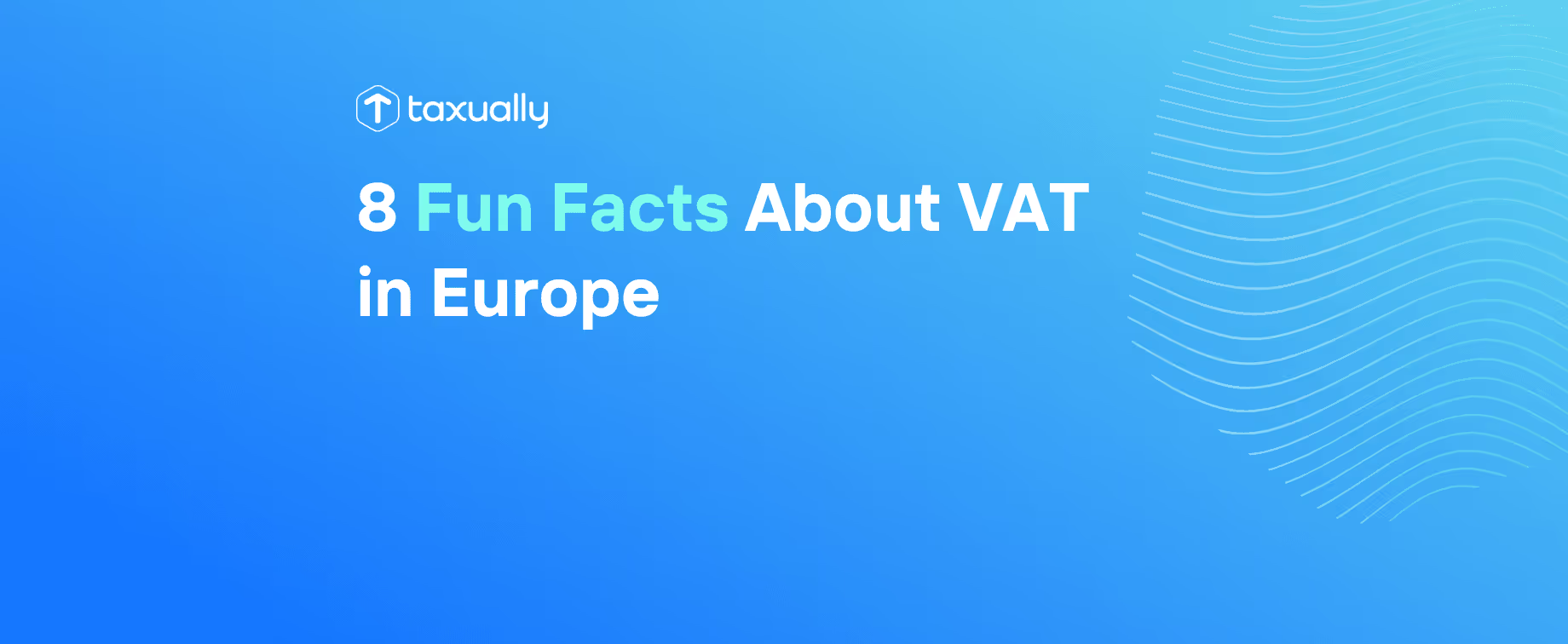Key takeaways
- VAT can be surprisingly quirky: From chocolate-covered gingerbread men to dancing debates, VAT rules often lead to unexpected (and amusing) outcomes.
- Food and fun spark controversy: Iconic cases like the Jaffa Cake ruling and Pastygate show how small distinctions can cause big tax debates.
- Context matters: Whether it’s sitting down for gelato or downloading an e-book, where and how something is consumed can completely change its VAT rate.
Okay, so VAT might not be the most exciting of topics, but that doesn’t mean there isn’t some humor to be found in this most ubiquitous of taxes. Due to the many ways VAT rules can be applied, the results can often be unexpected. Let’s take a look at eight fun facts about VAT that demonstrate just how quirky this tax can be.
With or without you

Across Europe, VAT rates can vary significantly from one country to another. But what’s often surprising to people is when and why items fall into different VAT brackets. For instance, in the UK, a gingerbread man is VAT free, but if it's covered in chocolate and gets icing eyes, it becomes standard-rated. Similarly, nuts sold in the UK with their shells on are considered VAT free, but attract the tax when sold without shells.
The great Jaffa Cake debate
In the UK, the classification of certain food items for VAT purposes can sometimes lead to disputes. A classic example is the infamous ‘Jaffa Cake debate’. The 1991 court case hinged on whether Jaffa Cakes (a popular biscuit-sized cake with orange filling and chocolate coating) should be taxed as cakes (zero rated VAT) or biscuits (standard rated VAT). The court ruled in favor of McVitie’s, considering Jaffa Cakes as cakes.
Pastygate
Another controversy over a favorite UK snack came in 2012 when the UK government announced that all foods purchased and consumed while hot would be charged at the standard 20% rate, and that included much-loved British pasties and pies. Following an uproar, and the clarification that such foods are often bought hot and eaten cold, the VAT rate hike was scraped. The affair became forever known as Pastygate.
Dance like the VAT man is watching
In some EU countries, dance studios and dance classes are subject to different VAT rates depending on whether the dance style is considered artistic or simply entertainment. This has led to some creative arguments over which dance styles are ‘high art’ and which ones are just for fun.
Less money for the bunny

If you’re planning on buying a pet for your children, consider a rabbit rather than a hamster or guinea pig. Rabbits are labeled as food under UK VAT rules, which means they aren’t subject to VAT. Hamsters and guinea pigs, on the other hand, are classified as pets and therefore taxed at the standard 20% rate.
Digital discrepancies
In the fast-paced digital world, even VAT regulations have to keep up. Many European countries have implemented a reduced VAT rate for e-books and digital publications, but not for audiobooks. So, when the latest bestseller everyone is raving about comes out, you might want to give it a read rather than a listen.
Even criminals need to pay VAT
In 2010 a court in Sweden ordered a couple who had been selling counterfeit goods online to pay VAT on all their sales. They appealed the decision, arguing that it was illegal for the Swedish authorities to profit from illegal sales, but the original judgment was upheld.
Gelato - to go or not to go

Italy, famous for its delicious gelato, has an interesting approach to VAT on frozen treats. If you enjoy your gelato seated at a table, you'll be charged the standard rate of VAT. But, if you opt to take your scoop away and eat it while strolling around, you'll pay a reduced VAT rate. So next time you’re in Italy, maybe get that ice cream (and VAT) to go.
Taxually can help with all your VAT needs
Do you need help with your VAT compliance? Book a free call with one of our VAT experts to find bespoke solutions for your business, optimize your VAT costs, and reach millions of new potential customers.
Frequently asked questions
New Year's Day - 1/1/2024Memorial Day - 5/27/20244th of July - 7/4/2024Labor Day - 9/2/2024Thanksgiving Day - 11/28/2024Day after Thanksgiving - 11/29/2024Christmas Eve - 12/24/2024Christmas Day - 12/25/2024
Why do some everyday items have different VAT rates?
VAT rules can depend on small details — like whether food is eaten hot or cold, taken away or consumed on-site, or even how it’s decorated. That’s why a chocolate-covered gingerbread man or a seated gelato might be taxed differently from their simpler counterparts.
What are some of the strangest VAT cases?
Famous examples include the Jaffa Cake debate over whether it’s a cake or biscuit, Pastygate in the UK, and Italy’s gelato VAT rules. These quirky cases highlight how complex — and sometimes amusing — VAT classifications can be.



















